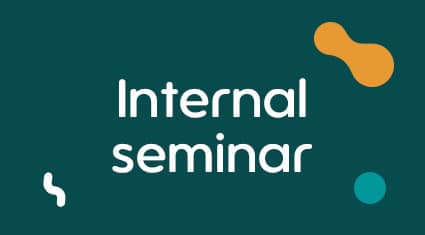IMM events :
The Institut de Microbiologie de la Méditerranée (IMM) organises scientific seminars for researchers every Friday at 11.30am.
These seminars are announced in the Institute’s diary.
The seminar organising committee is made up of :
– Bénédicte BURLAT, researcher at BIP
– Isabelle IMBERT, teacher-researcher at LISM
– Vladimir PELICIC, researcher at the LCB
– Hugo BISIO, researcher at IGS
Seminar information :
– Frequency: Every Friday
– Time: 11.30 a.m.
– Accessibility: These events are not open to the general public. For open events, please consult the public events page.
List of Seminars:
Below is the list of scientific seminars scheduled for the coming month.
If you have any questions or require further information, please do not hesitate to contact the organising committee: seminaires@imm.cnrs.fr

- This event has passed.
Insights into catalysts of environmental methane oxidation across landscapes

John S. Magyar, Division of Geological and Planetary Sciences, California Institute of
Technology, Pasadena, California, USA
Insights into catalysts of environmental methane oxidation across landscapes
Aerobic methane oxidation has evolved in the biosphere multiple times. Studies of aerobic methanotrophy have focused on two proteins: soluble methane monooxygenase (sMMO) and particulate methane monooxygenase (pMMO). Laboratory experiments and field
observations, however, indicate that these are not the only proteins capable of oxidizing methane and other small hydrocarbons in the environment, even at low substrate concentrations. We have measured methane gas fluxes in a variety of landscapes, including rivers, floodplains, permafrost, desert, oak woodland, and arid rangeland, over a multiyear series of field expeditions in Alaska and California.
These environments include a wide range of temperature (subzero to > 40 ºC), moisture, and methane concentration conditions. We observe substantial Alaska riverine methane concentrations, in some cases surpassing deep sea methane concentrations near methane seeps. Across these varied landscapes and conditions, we observe significant soil methanotrophy.
Using environmental sampling, amplicon-based soil and water microbial community composition, metagenomic analyses, and bioinorganic chemistry, we provide new insights into an expanded range of metalloproteins that may be able to accomplish methane oxidation across a wide variety of environments.
Invited by A. Ivancich et S. Duval, BIP
